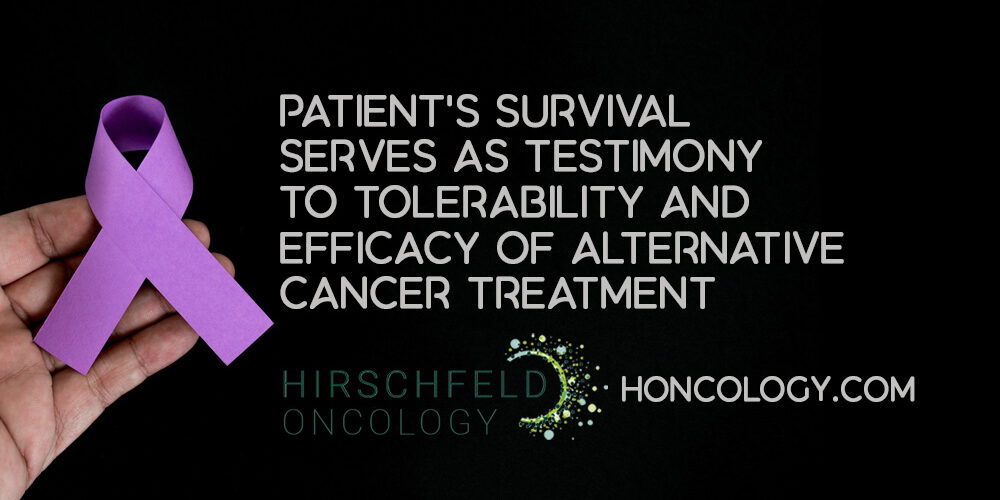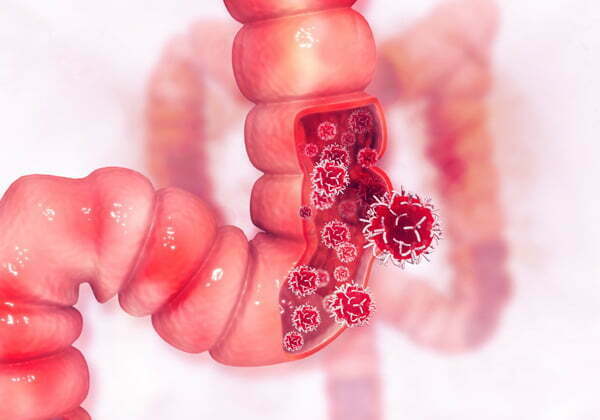Understanding Gastrointestinal Cancer Symptoms and Their Impact
Overview of Gastrointestinal Cancer and Common Symptoms During Treatment
Gastrointestinal (GI) cancer encompasses various cancers affecting the digestive system including the stomach, esophagus, colon, liver, pancreas, and others. Common symptoms during GI cancer and its treatment include abdominal pain, changes in bowel habits such as diarrhea or constipation, nausea, vomiting, loss of appetite, fatigue, and weight loss. Many patients also experience symptoms directly related to treatment effects like chemotherapy-induced nausea or radiation-related mucositis.
These symptoms often arise due to the cancer itself, tumor growth, or as side effects of therapies such as chemotherapy, radiation, or surgery. For example, chemotherapy can cause mucosal damage, leading to poor nutrient absorption and increased gastrointestinal discomfort. Treatment-related complications may include bowel obstruction, bleeding, or infections that further contribute to symptoms.
Impact of Gastrointestinal Symptoms on Patient Quality of Life and Treatment Continuity
Gastrointestinal symptoms significantly affect quality of life by causing discomfort, pain, and nutritional issues like malnutrition and dehydration. Symptoms like chronic diarrhea or severe constipation can limit daily activities and cause distress. Fatigue and loss of appetite also reduce the patient's strength and ability to engage in life fully.
Importantly, unmanaged GI symptoms may interfere with the delivery of cancer treatment. Severe side effects can lead to dose reductions or treatment interruptions, negatively impacting treatment effectiveness and overall prognosis. Up to 25% of cancer survivors report persistent GI symptoms that continue to affect their quality of life long after therapy.
Effective symptom management—including dietary adjustments, medication, and supportive therapies—is critical to maintaining treatment adherence and improving patient well-being. Multidisciplinary care teams and patient-reported outcome measures help ensure timely recognition and treatment of symptoms. Overall, controlling GI symptoms plays a crucial role in both enhancing quality of life and optimizing cancer care outcomes.
Symptom Profiles and Challenges in Gastrointestinal Cancer Care

What are common gastrointestinal symptoms during cancer therapy?
Patients undergoing gastrointestinal cancer therapy frequently experience a range of gastrointestinal symptoms in cancer therapy, including managing nausea and vomiting, cancer therapies and gastrointestinal complications, constipation in terminally ill patients, abdominal pain, loss of appetite, and fatigue. These symptoms arise both from the cancer itself and from the side effects of treatments such as chemotherapy and radiation therapy. Diarrhea affects 50-80% of patients depending on treatment, while constipation is highly prevalent, especially among terminal cancer patients and those using opioids (Cancer-Related Bowel and Bladder Problems).
How do GI symptoms overlap and complicate management?
GI symptoms in cancer patients often co-occur and overlap, making management more complex. For example, nausea, loss of appetite, and fatigue can collectively reduce nutritional intake, worsening patient strength and treatment tolerance. Pain may arise from tumor growth or treatment side effects (managing cancer pain), while bowel problems like constipation or diarrhea may fluctuate with treatment cycles (Cancer therapies and gastrointestinal complications). This multiplicity requires guideline-recommended symptom management in cancer rather than isolated symptom treatment to reduce patient burden and improve quality of life (improving quality of life with coordinated symptom care).
What is the significance of symptoms like ascites, bowel obstruction, and dark stools?
Certain symptoms indicate serious complications:
- Ascites refers to fluid buildup in the abdomen, causing swelling and discomfort, often requiring drainage (relief from ascites in stomach cancer).
- Bowel obstruction from tumor infiltration or compression can lead to pain, bloating, and blocked food passage, necessitating interventions like managing stomach blockage, stent placement for stomach cancer, or laser therapy.
- Dark stools often signal bleeding in the GI tract, possibly due to tumor ulceration, and may require controlling bleeding in stomach cancer or other treatments to manage bleeding.
Timely recognition of these signs is critical to symptom control and preventing further complications (symptoms related to cancer spread.
What role do patient-reported outcomes play in assessing symptoms?
Patient-reported outcomes (PROs) have emerged as vital tools for assessing symptom severity and impact directly from patients’ perspectives. PROs encompass measures of symptom intensity, functionality, and quality of life. Electronic PRO systems facilitate real-time symptom monitoring, enabling personalized care adjustments. Studies have shown PROs capture subjective GI symptoms more accurately than clinician reports and have prognostic value, with better-reported quality correlating with lower mortality risk. Integration of PROs supports more responsive, patient-centered cancer supportive care.
Nutritional Management: Combating Malnutrition and Supporting Recovery
How common is malnutrition among gastrointestinal cancer patients and why is it important?
Malnutrition affects a significant portion of gastrointestinal (GI) cancer patients, with prevalence rates between 20% and 70%. It's particularly high in upper GI cancer cases, impacting over 60% of patients. This condition involves appetite loss, muscle wasting (sarcopenia), and cachexia, all of which can reduce treatment tolerance, prolong recovery, and worsen overall prognosis. For more details, see Malnutrition in GI cancer patients.
What nutritional strategies support patients through treatment?
Small, frequent meals rich in calories and protein are recommended to help maintain adequate nutrition despite reduced appetite or eating capacity. Liquid nutritional supplements and easily digestible foods aid patients who struggle with swallowing or early fullness. Foods moist with sauces and softer textures improve tolerability. Guidance on these strategies can be found in 8 strategies to help gastric cancer patients cope with nutrition problems during treatment and Nutrition therapy for stomach cancer.
How can immunonutrition and gut microbiota modulation help?
Specific nutrients like arginine, glutamine, and omega-3 fatty acids support immune function, reduce inflammation, and improve tissue repair during cancer treatment. Additionally, modulating gut microbiota through probiotics, prebiotics, and synbiotics can enhance immune responses, reduce postoperative infections, and improve digestion and nutrient absorption. For comprehensive insight, see Nutritional intervention strategies and gut microbiota modulation in GI cancer and immunonutrition in gastrointestinal cancer.
How can diet alleviate common symptoms?
Adjusting dietary choices can help relieve symptoms like early satiety and indigestion, often seen in stomach cancer. For patients experiencing dumping syndrome post-surgery, dietary changes such as eating smaller meals and avoiding high-sugar foods can improve symptoms such as nausea and diarrhea. Detailed information is provided in Supportive care for stomach cancer including dumping syndrome management.
Why is early nutritional assessment essential?
Early involvement of dietitians and nutritional screening before and during treatment allows for timely interventions that improve outcomes. Preoperative nutritional support reduces complications, while tailored postoperative nutrition aids recovery and sustains patient strength. Read more about Preoperative and postoperative nutrition support for GI cancer patients and Multidisciplinary supportive care in cancer treatment.
Overall, a multidisciplinary nutritional approach involving dietary modifications, immunonutrition, and gut health support is vital to managing GI cancer symptoms and enhancing patients' quality of life throughout their treatment journey. See Managing gastrointestinal symptoms from cancer treatment for clinical guidance.
Managing Gastrointestinal Symptoms During Treatment: Multidimensional Strategies

Pharmacologic Approaches for GI Symptom Management
Medications are central to managing gastrointestinal symptoms in cancer treatment. Anti-emetics such as ondansetron are commonly used to control nausea and vomiting. Laxatives help alleviate constipation, especially opioid-induced constipation, which requires individualized bowel programs to prevent and manage effectively. Antidiarrheal agents like loperamide address diarrhea, which may arise from cancer therapies. Pain is often managed with opioids, tailored to severity, alongside adjuvants such as antidepressants or anticonvulsants for neuropathic pain. For detailed strategies, see Cancer-Related Bowel and Bladder Problems and Managing gastrointestinal symptoms from cancer treatment.
Nonpharmacologic Interventions
For obstruction in the stomach or bowel, non-drug interventions like stents and laser therapy can relieve blockages and improve comfort. Ascites, or abdominal fluid buildup, is managed by drainage procedures performed by healthcare professionals to reduce discomfort and breathing difficulty. These procedures complement pharmacologic treatments and are often critical in symptom relief. More on supportive care for stomach cancer and interventional care can be found at that resource.
Complementary Therapies
In addition to medications and procedures, complementary therapies offer benefits in symptom control. Acupuncture for cancer symptom management has evidence supporting its use to reduce nausea and pain. Relaxation techniques and hypnotherapy also contribute by alleviating nausea, vomiting, and cancer-related pain, enhancing quality of life during treatment. Additional complementary approaches are described in Mind and Body Approaches for Cancer Symptoms and Treatment Side Effects.
Multidisciplinary Symptom Control Teams
Symptom management is optimized by specialized care teams consisting of oncologists, palliative care specialists, nurses, dietitians, and complementary therapy practitioners. They coordinate pharmacological and nonpharmacological treatments, monitor side effects like opioid constipation, and provide patient education. This team-based approach ensures personalized and effective symptom relief enhancing patient comfort throughout cancer therapy. For further reference, see Guideline-Recommended Symptom Management Strategies and Integrated Cancer Symptom Management with Stepped Collaborative Care.
Addressing Fatigue and Psychological Well-being in GI Cancer Patients

What Causes Fatigue in GI Cancer and Its Treatments?
Fatigue in gastrointestinal (GI) cancer patients stems from both the disease and its treatments. The cancer itself can cause persistent tiredness, while chemotherapy, radiation, and surgeries also contribute significantly. Factors like poor nutrition, pain, and sleep disturbances worsen fatigue. For detailed insights see Managing Cancer Fatigue.
How Can Patients Manage Cancer-Related Fatigue?
Managing fatigue involves a combination of prioritizing rest and incorporating light exercise such as walking or yoga. Small, frequent meals and stress-reduction techniques like meditation or deep breathing help conserve energy and reduce exhaustion. Patients are encouraged to balance activity and rest to maintain physical function. For practical tips refer to Managing Cancer Fatigue and Cancer-Related Stress.
What Psychological Interventions Support Fatigue and Distress?
Psychological approaches such as cognitive behavioral therapy (CBT), mindfulness-based stress reduction, hypnosis, and participation in support groups offer significant relief. These therapies help patients cope emotionally, decrease anxiety and depression, and improve mood and quality of life. See Mind and Body Approaches for Cancer Symptoms and Treatment Side Effects and Complementary Therapies for Cancer Symptom Management.
How Does Telehealth Enhance Symptom and Emotional Care?
Integrated telehealth programs providing stepped collaborative care in cancer symptom management, including weekly CBT sessions, are effective for addressing both emotional and physical symptoms. These accessible, remote therapies reduce hospital visits and improve health-related quality of life. More information is available at Cancer Symptoms Stepped Collaborative Care.
Why Is Mental Health Integral to GI Cancer Care?
Addressing mental health supports better treatment tolerance, reduces fatigue severity, and improves overall quality of life. Emotional well-being enhances patients’ ability to manage symptoms and adhere to therapies, underscoring the need for holistic symptom management in GI cancer care. Refer to Guideline-Recommended Symptom Management Strategies and Cancer-Related Stress.
Optimizing Pain Management in Gastrointestinal Cancer Care
What causes pain in gastrointestinal cancer patients?
Pain in gastrointestinal (GI) cancer arises from both the tumor itself and the treatments used. Tumor-related pain can be caused by obstruction of the stomach or bowels, nerve compression, or infiltration into surrounding tissues. Treatment-related pain often stems from surgery, chemotherapy-induced neuropathy, or radiation therapy effects. For more detailed information on managing cancer pain, pain treatments for cancer, and neurolytic procedures for cancer pain, see resources on pain management in stomach cancer.
How are opioids and adjuvant analgesics used?
Opioids remain the cornerstone for managing moderate to severe cancer pain and are administered orally, via patches, injections, or pumps. Breakthrough pain is managed with fast-acting rescue medications like oral morphine. Adjuvant analgesics—including antidepressants, anticonvulsants, and steroids—target specific pain types such as neuropathic pain to enhance relief. Detailed guidance about pharmacologic cancer symptom treatments and opioid pain medications can be found in the linked resources.
What interventional approaches relieve pain?
Interventions include nerve blocks and neurolytic procedures to disrupt pain transmission. Radiation therapy can reduce tumor size and alleviate pain caused by compression or obstruction. Surgery, such as stent placement or gastrojejunostomy, addresses mechanical blockages, easing pain and restoring function. Information about radiation therapy for stomach cancer, stent placement for stomach cancer, and gastrointestinal cancer surgical treatment provides further insight.
How do complementary therapies contribute?
Complementary methods like massage therapy, meditation, acupuncture, and relaxation techniques can reduce pain intensity and improve well-being. These therapies support conventional treatments and help manage associated symptoms like anxiety and fatigue. For evidence-based approaches, see mind-body therapies in cancer care and mind and body approaches for cancer symptoms.
Why is a multidisciplinary approach important?
Pain management for GI cancer patients is personalized and typically involves oncologists, pain specialists, nurses, and complementary therapy practitioners. This collaborative approach ensures symptom control strategies are tailored to individual needs, enhancing quality of life. Additional information on integrated cancer symptom management and symptom management guidelines supports this comprehensive approach.
Mitigating Bowel Dysfunction and Its Complications

What bowel problems frequently occur during gastrointestinal cancer treatment?
Bowel dysfunction is common among gastrointestinal (GI) cancer patients, especially during and after treatment. Typical problems include diarrhea, constipation, and bowel obstruction. Diarrhea affects 50-80% of patients and may be severe. Constipation is also highly prevalent, experienced by up to 87% of terminally ill cancer patients. Bowel obstructions cause symptoms such as pain and bloating and often require urgent management.
What causes these bowel dysfunctions?
Several factors contribute to bowel problems in GI cancer care:
- Medications: Opioids, widely used for pain control, frequently cause constipation by reducing bowel motility (Cancer therapies and gastrointestinal complications.
- Infections: Immunosuppressed patients are susceptible to infections like Clostridium difficile that provoke secretory diarrhea (Cancer therapies and gastrointestinal complications.
- Surgical consequences: Resections can result in malabsorption syndromes, bile acid diarrhea, and altered bowel transit (Gastrointestinal (GI) cancers overview, Gastrointestinal symptoms in advanced cancer).
- Neurogenic causes: Tumors or treatments affecting nerves lead to neurogenic bowel dysfunction with varying symptoms (Cancer therapies and gastrointestinal complications.
How are bowel problems diagnosed and managed?
Accurate diagnosis is essential due to multifactorial causes. Diagnostic tools include:
- SeHCAT scans to detect bile acid malabsorption causing diarrhea (Gastrointestinal symptoms in advanced cancer.
- Breath tests to identify small intestinal bacterial overgrowth (SIBO) (Gastrointestinal symptoms in advanced cancer. Management follows a stepwise approach:
- Dietary modifications such as adjusting fiber intake or hydration (Managing gastrointestinal symptoms from cancer treatment).
- Medications: Loperamide and octreotide for diarrhea; laxatives and peripherally acting mu-opioid receptor antagonists (PAMORAs) for opioid-induced constipation (Cancer therapies and gastrointestinal complications.
- Procedural interventions: Endoscopic procedures or surgery for bowel obstruction (Gastrointestinal cancer surgical treatment).
How can symptom severity and hospitalizations be reduced?
Preventative measures include judicious opioid use to avoid constipation and early identification of symptoms via patient-reported outcomes (Gastrointestinal symptoms in advanced cancer, Guideline-recommended symptom management in cancer. Education of patients and healthcare professionals promotes timely intervention. Multidisciplinary support and individualized bowel programs enhance quality of life and may reduce hospitalizations (Controlling symptoms of advanced stomach cancer.
By integrating diagnostic assessments with tailored treatments, healthcare teams can effectively mitigate bowel dysfunction in GI cancer patients, thereby improving treatment tolerance and patient comfort.
Integrating Complementary and Supportive Care for Holistic Symptom Relief

How do complementary therapies aid in symptom alleviation?
Complementary therapies such as yoga, tai chi, acupuncture, and music therapy have gained recognition for their role in managing symptoms common in gastrointestinal (GI) cancer patients. These approaches help alleviate nausea, reduce fatigue, ease anxiety and depression, and improve overall quality of life. For instance, acupuncture can mitigate treatment-related nausea and pain, while gentle exercises like yoga and tai chi enhance physical well-being and reduce stress.
How does supportive care address emotional, spiritual, and practical challenges?
Supportive care in GI cancer treatment encompasses physical symptom relief alongside emotional and spiritual support]. Patients face challenges related to body image changes, fatigue, and emotional distress. Multidisciplinary teams provide comprehensive care by addressing nutrition issues, psychological support, and spiritual concerns, thus improving patients' coping abilities and well-being.
What is the importance of multidisciplinary teams in symptom management?
Effective symptom management relies on coordinated efforts of diverse specialists including dietitians, psychologists, and symptom control experts. Dietitians assist with nutritional challenges such as weight loss and appetite changes, while psychologists address mental health concerns including anxiety and depression. Symptom control teams coordinate medication and therapeutic interventions to manage pain, gastrointestinal symptoms, and fatigue].
How does education and patient-centered communication empower patients?
Education about symptom management and open patient-provider communication empower GI cancer patients to actively participate in their care. Understanding symptom causes and management strategies encourages self-care and adherence to therapies. Patient-centered approaches improve symptom reporting accuracy and tailor interventions to individual needs, fostering better quality of life and treatment outcomes (see guidelines for symptom management.
Integrating complementary therapies within a supportive multidisciplinary framework offers a holistic approach to symptom relief, addressing the complex needs of GI cancer patients across physical, emotional, and practical domains.
Enhancing Quality of Life Through Coordinated Symptom Management
Importance of Early, Tailored, Multidisciplinary Approaches
Effective management of symptoms in stomach and gastrointestinal cancers hinges on early, personalized intervention. Multidisciplinary teams combining oncologists, dietitians, symptom control experts, and mental health professionals optimize care. Tailoring strategies to individual symptoms and treatment side effects ensures a holistic approach.
Maintaining Treatment Adherence and Outcomes Through Symptom Control
Controlling symptoms like pain, fatigue, nausea, and gastrointestinal disturbances helps patients maintain their treatment schedules and improves overall outcomes. Adequate symptom alleviation prevents treatment interruptions and enhances quality of life during often challenging cancer therapies.
Advances in Research and Therapies
Ongoing clinical trials and evolving therapies, including targeted drugs, immunotherapy, and integrative symptom management, demonstrate promise. Integrating patient-reported outcomes in routine care allows timely adjustments, while innovations like telehealth-delivered cognitive behavioral therapy and dietary immunonutrition are emerging as valuable tools.
Central Role of Patient Education and Supportive Care
Patient engagement through education on symptom recognition and management empowers self-care and timely communication with healthcare teams. Supportive services address emotional and physical challenges, fostering resilience. Coordinated supportive care available in hospitals, hospices, and home settings is essential to the comprehensive cancer journey.





.png)


.png)
.png)




